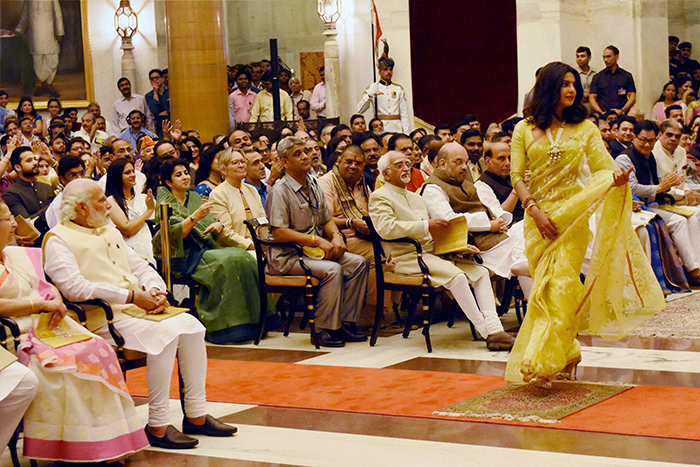The Honours Game

Gandhi was popularly known as ‘Mahatma’ (Great Soul) though he always disapproved of the use of any adjective denoting his personal qualities. However, the epithet came to be universally accepted and became an inseparable part of the name of Gandhi. It was not conferred by the state. It was the result of an emotional urge on the part of the people who wanted to recognise in an appropriate manner the services of a great man.
There was nothing undemocratic in it. Gandhi was recognised not by the British rulers; he was not given official recognition. But he was recognised by the people. There have been many other illustrious leaders in this country who were recognised by the people. Subhas Chandra Bose was called ‘Netaji’, C.R. Das was hailed as ‘Deshbandhu’, Bal Gangadhar Tilak was popularly called ‘Lokmanya’, Vallabh Bhai Patel was better known as ‘Sardar’ and Rajendra Prasad was called ‘Desh Ratna'. Even today Vinoba is reverentially addressed as ‘Sant Vinoba and Jayaprakash Narayan as ‘Lok Nayak’.
The respect for these leaders has been spontaneous and came from the hearts of the masses who got inspiration from them during freedom movement. This was the way the simple and unsophisticated people of India expressed their love and gratitude to their leaders.
But the governments are in a different position and it will not do for them to grant such awards and invoke this habit as a justification for their action. When the state enters the field, the results are not so happy. It is in a way desirable that people should have a sense of respect for a person honoured by the State, but popular respect does not go merely by government titles. In fact, the society honours those who really serve it and holds in contempt the persons upon whom the recognition is imposed by the government for extraneous reasons. Only when the government recognition of some one's merit would reflect correctly the people's esteem, the state awards may be said to have popular sanction.
Even from the point of view of the meritorious and the deserving ones it can safely be said that to the artist or, for that matter, to any one of distinction, public recognition is more valuable than the official recognition. Few practice art for the sake of honour and ‘no musician sings in the expectation of a medal or scroll from Rashtrapati Bhavan.’ What should happen is that the official recognition should follow the popular recognition and the government should merely honour those whom the public has already honoured.
When this does not happen it amounts to asking the people to honour those whom the government has given recognition. And this is what now happens. The result is that those who are honoured by the government receive no incentive from the people and the awards, when given to unpopular persons lose respect in public mind. So unless we have respect for a person honoured by the government we are lowering the respect for these awards. The recognition of men of outstanding services should be left to the spontaneous appreciation of the people themselves and not on the whims of the party in power.
The run-up to the announcements of awards every year has been marked by hectic behind-the-scenes jostling for the awards. A "canonize-my-candidate campaign" gripped India's political class.
In a shocking incident, Central Bureau of Investigation (CBI) officials have registered a case against a Padma Bhushan awardee (Padma Shri in 2002 and Padma Bhushan in 2012) in the ongoing crackdown against black money. A Padma Bhushan awardee and former World Billiards Champion and three others were arrested in a case of Rs 400crore alleged fraud involving the multilevelmarketing company.
Earlier,JD(U) chief Sharad Yadav said it was embarrassing that Padma Awardees were named in Panama Papers.Sangh Parivar ideologue S Gurumurty rightly said : “In Padma awards some names add value to the awards and some names bringing disrepute to the awards. Yet the craze for this award is shocking,” he said.
No surprise if the Ministry of Home Affairs (MHA) has received over 5,000 nominations for this year’s Padma awards. Just how well the guidelines of High Level Review Committee(1996), set up under the guidance of Supreme Court of India, to set stringent qualifications for the awards, were observed ?
Recent RTI queries have revealed that successive governments ignored the guidelines. Recognition of merit in various fields could be accepted in a way. But it is one thing to do so at the right moment and in respect of a particular case but quite another to make a sort of selection and publish a whole list of such awards regularly at appointed dates. The fault lies in institutionalising the practice resulting in lobbying and begging for awards.
Better do away with it.
For part one here
(The writer is Director ,FPRC,New Delhi)



